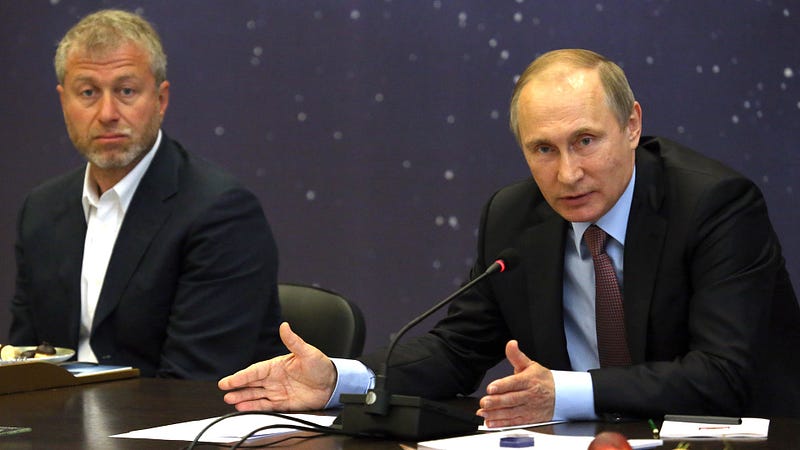
It has been well over a month since Vladimir Putin announced his nation’s “special military operation” in Ukraine. To many’s surprise, the Ukrainians have been successful at holding back Russia’s military aggression, but Ukraine has been burdened with looming economic and humanitarian crises as a result. Many countries have offered Ukraine support in different ways; the U.S. and Germany, for example, have sent hundreds of millions of dollars worth of weapons and equipment to Ukraine. Many other countries have offered humanitarian assistance, such as taking in refugees and sending relief supplies.
Aside from economic and military sanctions on Russia, one of the earliest social sanctions came from the sports world. On Feb. 28, the International Olympic Committee (IOC) issued a statement in which it “recommends that International Sports Federations and sports event organizers not invite or allow the participation of Russian and Belarusian athletes and officials in international competitions.” On the same day, FIFA suspended Russia from the World Cup qualifying tournament and all Russian clubs from other international competitions. Chelsea Football Club of England’s Premier League, whose owner Roman Abramovich has ties with Putin, had its credit frozen, and the club could not even buy gas for the team buses.
Many orchestra and ballet groups have also faced problems, as many theaters have canceled their tours. A Welsh orchestra, the Cardiff Philharmonic Orchestra, removed music composed by Pyotr Ilyich Tchaikovsky from their future shows. The orchestra’s decision attracted debates on social media as many questioned if removing Tchaikovsky, who has been dead for over a century, was a practical way to condemn Putin’s aggression. Steven Crowder, a conservative political commentator, tweeted, “I get it. You don’t like Putin. I don’t, either. But why cancel Tchaikovsky? He’s been dead for over 100 years. I guess even the dead aren’t safe from being canceled.” The orchestra, in response to the criticism, defended their decision to drop Tchaikovsky’s piece: not because he was Russian, but because the piece in question has a prominent military theme and features a volley of cannon fire, making it “inappropriate for this time.” In fact, what Steven Crowder and many angry internet commentators do not realize is the fact that the concert still features works by Russian composers like Sergei Prokofiev and Sergei Rachmaninoff. It is more likely that the elements of Russian nationalism and military themes of the “1812 Overture” caused the cancellation, rather than Russophobia.
On the other hand, ever since the start of the invasion, Russian businesses in the U.S. have experienced disastrous declines in sales. Many Russian restaurants, for example, saw canceled reservations and decreased visits. More importantly, a lot of the restaurants were given negative online reviews and even got vandalized or threatened for just something as small as having the word ‘Russian’ in their name. However, vandalizers have ignored that most (if not all) of these restaurants have put up messages that support Ukraine or oppose war. Many store owners came to the U.S. to get away from the problematic regime that deprived them of freedom. Yet even in this purported “land of freedom,” they are still bullied for valuing their Russian cultural heritage. Furthermore, because of certain social and cultural similarities between Ukrainians and Russians, a lot of these restaurants have Ukrainian employees and owners. Their lives have become much harder, ironically, thanks to the “enthusiastic supporters of Ukraine.”
The Russophobia in recent weeks more or less reminds me of the Sinophobia since the onset of COVID-19, as Chinatowns in U.S. cities have been among the hardest-hit economic victims of the pandemic. Chinatowns have been on the receiving end of fear, anger, vandalism and threats since the start of the pandemic, not to mention the increase in unprovoked attacks on the Asian elderly. Since the start of the war in Ukraine, these same phenomena have occurred with Russian businesses, many of which have no connection with the Russian government.
The angry internet commentators like Steven Crowder seem very different from the people that throw bricks at a Russian restaurant. However, they are actually the same kind of people in terms of their unwillingness to think about the complicity behind things they encounter. At first glance, I also thought banning athletes and musicians was ridiculous. However, after reading some reports and talking with people more knowledgeable on this topic, I realized a lot of the top athletes and artists in Russia receive state-funding and have close ties with Putin. By focusing responses on these elites, the E.U. and the U.S. try to assert more indirect pressure on Putin; after all, Putin and his band of billionaires hold power and control over Russia. On the other hand, there is the extra layer of complexity that not every athlete or artist is pro-Putin.
I use the above examples of social sanctions and vandalism to illustrate the two extremes of the spectrum, who do not want to slow down and learn about the context. It feels strange to say this, as I am certainly being judgmental, but way too many people like to simplify complex things before them into a lazy equation. In other words, they do not want to spend the extra time trying to understand the reason behind certain actions. When they see the news title that an orchestra banned a piece by Tchaikovsky, they storm it with criticism without understanding the military context of the specific piece: the “1812 Overture.” As I said earlier, the true practicality of the ban on Tchaikovsky is certainly debatable. There are good arguments from both sides. However, purely unleashing anger without being informed on the context is not only stupid, but also dangerous. It happened in California against Japanese Americans during WWII. It happened against french fries in 2003. Now, in 2022, it is happening again.
















